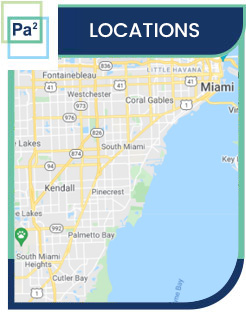Top Allergists in Coral Gables and Palmetto Bay, FL
An allergist specializes in diagnosing and managing allergic conditions such as asthma, hay fever, food allergies, and eczema. They perform comprehensive testing, prescribe medications, and recommend immunotherapy treatments. Consulting an allergist is essential for effectively controlling allergies. If you are looking for a top allergist, visit Piniella Asthma + Allergy for allergy treatment from an experienced and board-certified allergist Dr. Carlos J. Piniella MD. Contact us for more information or schedule an appointment online! We have convenient locations to serve you in Coral Gables FL and Palmetto Bay FL.


Table of Contents:
How do I choose a good allergist?
Are an allergist and immunologist the same?
What can an allergist diagnose?
How often should you see an allergist?
Allergies have become a way of life for over half the population of the United States, estimated to be in the region of 50+ million people. With the numbers steadily growing it’s not surprising that the medical expertise of allergists is in high demand. An allergist, also known as an immunologist, is a physician trained specifically in the treatment of allergies and other immune disorders. An allergic reaction occurs when the body’s immune system perceives a threat from invading microbes, called allergens, and whilst most of these allergens are harmless and have no effect at all, some will cause reactions that need medical intervention.
• If you have reached the stage of having to see an allergist you have already likely been to your family doctor who may have referred you to one of their recommended providers. However, it’s always a good idea to do your own research and to get recommendations from family, friends or other healthcare professionals. Other things to consider when choosing an allergist are:
• Make a shortlist by checking the doctor’s credentials and experience. For example, are they board certified (indicating that they have the skills, training and experience necessary to provide healthcare in their field), or do they have any malpractice claims or disciplinary actions against them?
• Read patient reviews.
• Ask for an initial consultation appointment to meet with the doctor.
• Check to see if the doctor has experience with your particular condition.
• Ask if they offer virtual, or telemedicine, visits. While such visits do not replace in-person consults they may be preferable to patients who are not always able to attend the doctor’s office. Your doctor will tell you if virtual consultations are suitable for your treatment plan.
• Check that your treatment is covered by your health insurance plan, especially in the case of virtual consultations. You will likely need to select a provider from your plan, but considering these points is still recommended when making your choice.
Yes, the terms ‘allergist’ and ‘immunologist’ both refer to a physician who has trained specifically in the diagnosis, treatment, and prevention of allergies and immune system disorders. In order to be able to provide effective treatment, the allergist must first determine what is causing the reaction by consulting with the patient and performing various tests. The results of these tests will tell the allergist which specific allergen(s) is causing the reaction and will enable them to reach a diagnosis and formulate a treatment plan.
Allergists are able to diagnose and treat a number of conditions such as hay fever, eczema, asthma, psoriasis, food allergies, and food intolerances, among others. You will be asked for a detailed medical history when you visit the doctor and may be asked to keep a diary of when you have a reaction. The allergist may also perform a skin prick test or require a blood test to help determine which particular allergen(s) are causing the reactions and to enable them to make an accurate diagnosis.
As in many situations, there is no fixed answer as to how often one should see an allergist. The frequency of visits will be driven by each individual case, such as the return (or increase) of symptoms after being on a previously successful avoidance plan or developing new symptoms which could be indicative of a different kind of allergic reaction. Studies have shown that people can develop new allergies over time and therefore treatment plans have to evolve along with them. Two years between tests is typical, but this can very easily change if these types of situations arise.
If you have any questions regarding the diagnosis, treatment, and prevention of allergies contact us at Piniella Asthma + Allergy! We have locations in Coral Gables FL and Palmetto Bay, FL to better serve you and we offer a broad range of services tailored to meet your asthma and allergy needs. Schedule your no-obligation consultation today! We serve patients from Coral Gables FL, Palmetto Bay FL, Westchester FL, Brownsville FL, Kendall FL, Pinecrest FL, Richmond West FL, and Goulds FL.

Additional Services You May Need
▸ Asthma
▸ Allergy Testing
▸ Food Allergies
▸ Immunotherapy
▸ Patch Testing
▸ Allergy Treatment
▸ Pediatric Asthma Specialist
▸ Pediatric Allergist
▸ Insect Bite Allergy
▸ Drug Allergy
▸ Seasonal Allergies
▸ Skin Allergy

Additional Services You May Need
▸ Asthma
▸ Allergy Testing
▸ Food Allergies
▸ Immunotherapy
▸ Patch Testing
▸ Allergy Treatment
▸ Pediatric Asthma Specialist
▸ Pediatric Allergist
▸ Insect Bite Allergy
▸ Drug Allergy
▸ Seasonal Allergies
▸ Skin Allergy


